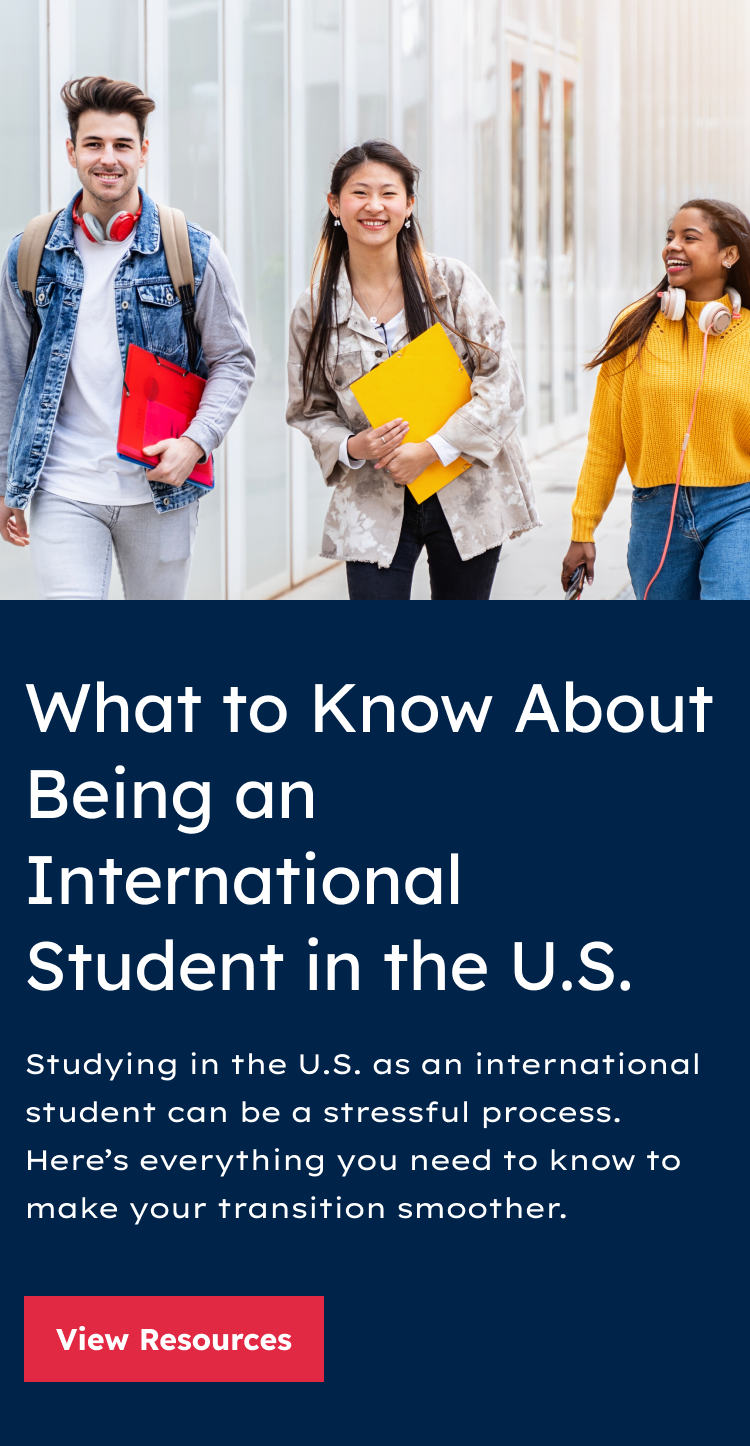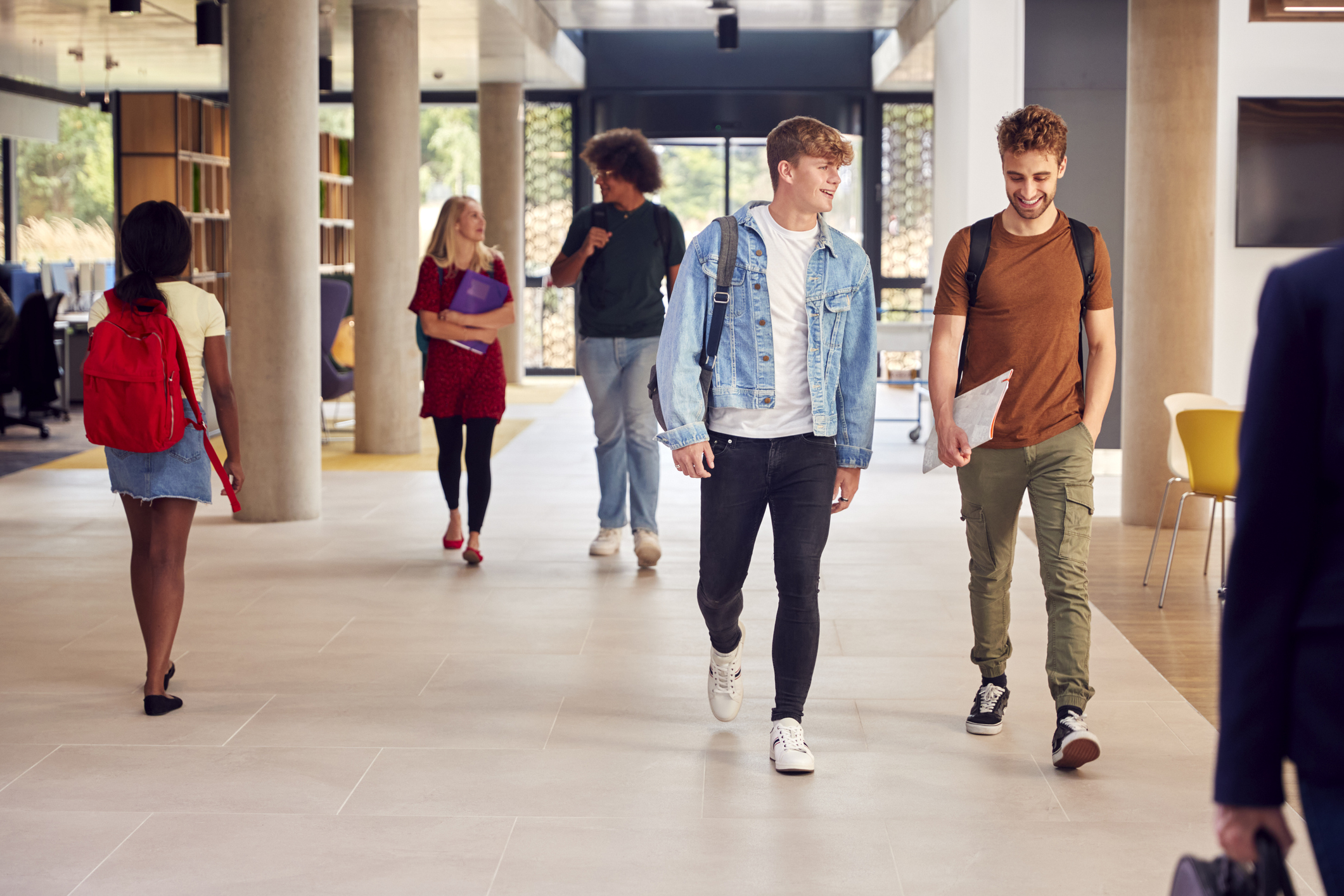International Student’s Guide to Working in the U.S.
- International students may be able to work in the U.S. under certain circumstances.
- You must follow visa regulations to work in the U.S. as an international student.
- Different international student visas have different protocols for work authorizations.
- For international students, working on campus has different rules than working off campus.
International students have a unique set of obstacles that are different from those for domestic college students when it comes to landing a job in the U.S. Visa protocols and regulations dictate what kinds of jobs you can get, when you can work them, and how many hours you can dedicate to working during the academic year.
This guide will help you navigate everything you need to know about working while studying in the U.S. as an international student. Read on to learn all about international student visa protocols and the processes that come along with working in the U.S.
Can International Students Work in the U.S.?
According to the Institute of International Education, statistics on international students show that about 20% fund their education in the U.S. through current employment. However, if you want to work in the U.S. as an international student, you must follow visa protocols for either the F-1 or J-1 visa, according to the U.S. Department of State.
The F-1 student visa is for international students who are enrolled as full-time degree-seeking students at an accredited college in the U.S. If you have this visa, there are already rules and regulations for obtaining work authorization.
The J-1 visa, on the other hand, is for international students studying in the U.S. through educational exchange programs sponsored by the U.S. Department of State.
Be sure to talk to your designated school official (DSO) about your student visa and what type of work you are eligible for.
Should I Get a Job While Studying Internationally in the U.S.?
Whether you should or shouldn’t get a job as an international student in the U.S. depends on a couple of different factors:
- Visa regulations: You’ll need to follow certain work regulations depending on your visa. You could risk losing your visa if you get a job that violates these regulations.
- Financial need: If you’re experiencing economic hardship or just need some extra money to comfortably get by, getting a job could help alleviate your financial stress.
- Professional goals: Working could be a great way to develop your work experience, skillset, and network for the future. Consider getting a job if attaining work experience now is imperative to your future career.
Before you begin your job search, be sure to check in with your international education advisors to discuss your visa regulations, financial need, and professional goals. They can advise you on whether you should work, how to acquire a job, and the processes to obtain work authorization.
Working On Campus as an International Student
According to the Department of Homeland Security (DHS), since international students don’t typically qualify for financial aid and work-study jobs, they should look for a non-work-study, on-campus job, such as:
- Dining Services
- Residential Life
- Athletics
- Student Media
Rules of On-Campus Employment
Getting an on-campus job as an international student comes with certain rules, according to U.S. Immigration and Customs Enforcement. Here are the rules for international students working on campus with F-1 visas:
Can work on campus without having to inform your DSO
Can work part time, up to 20 hours a week, during the academic year
Can work full time during winter and summer breaks
How to Get an On-Campus Job
International students do not qualify for work-study jobs because these programs are federally funded. That said, you can look for jobs that are open to non-work-study students.
In some cases, the same kinds of jobs may be available to both work-study students and non-work-study students.
Working Off Campus as an International Student
You can only work off campus with specific authorizations, such as an F-1 visa under Curricular Practical Training (CPT) and Optional Practical Training (OPT), according to U.S. Citizenship and Immigration Services (USCIS). These authorizations must be included on your Form I-20.
Optional Practical Training
OPT is a type of temporary work authorization related to your field of study. Under the F-1 visa, you are eligible to apply for OPT through USCIS, which can permit certain kinds of work related to your major.
USCIS states that there are three different categories of OPT, each with its own regulations:
- Pre-completion OPT: Allows you to work off campus in a job related to your field of study before your graduation, under certain conditions.
- Post-completion OPT: Allows you to work off-campus in a job related to your field of study after your graduation under the condition that you work at least 20 hours a week.
- STEM OPT Extension: Allows you to apply for a 24-month OPT extension if you earned a degree in a particular STEM field.
Curricular Practical Training
CPT is another kind of authorization for temporary employment to participate in an internship, cooperative education program, or practicum related to your field of study. According to DHS, your job under CPT must be “integral” to your curriculum.
Here are some of the rules for students working under CPT authorization:
- You can work full time or part time
- Training must occur before your program’s end date
- You can have more than one CPT authorization at a time
- If you don’t work full time for a year under CPT, you can still qualify for OPT
How to Get an Off-Campus Job
If you want to get an off-campus job, it’s important to first understand what kind of visa you have and what the visa protocols around working off campus are for your visa.
Once you understand this, it’s important to consider what kind of work in your field you’re interested in. Are you interested in an internship, practicum, or traditional employment?
Once you know, you should begin looking for opportunities for off-campus work in your field. During your job hunt, you should meet with your international advisor to discuss your options and the processes for the work authorization you would need to apply for.
You must receive work authorization from your DSO before you can begin working off campus.

Frequently Asked Questions About Working in the U.S. as an International Student
How can an international student get a job in the U.S.?
An international student can get a job depending on their student visa’s protocols.
International students can work on campus without authorization from their designated school official. However, you’ll need authorization before you can begin working off campus.
To work off campus, F-1 student visa holders can apply for CPT or OPT work authorization after they complete their first academic year.
Is it hard for international students to get a job in the U.S.?
Getting a job in the U.S. comes with its unique set of challenges for international students. What may make the process more difficult is obtaining the proper work authorizations depending on your visa type.
F-1 student visa holders can work on campus if they’re eligible and can apply for off-campus work authorization. You might be eligible for employment if you have a J-1 student visa, depending on your exchange program’s rules.
Be sure to follow all USCIS regulations and talk to your DSO about your work eligibility in the U.S. Working in the U.S. as an international student without proper authorization can have serious repercussions, including deportation.
How many hours can I work on an F1 visa?
Under an F-1 visa, you are authorized to work up to 20 hours (part time) on campus and off campus during the academic year. During summer and winter breaks, you can work full time (up to 40 hours).
It’s important to note that if you are participating in off-campus work authorizations such as CPT and OPT, certain regulations regarding how many hours you work may impact the length of your work authorizations.
Which job is best for international students?
The best kinds of jobs for international students are either non-work-study on-campus jobs, such as those in dining and residential life, or off-campus jobs related to your field of study.
Some of the best on-campus jobs for international student workers include:
- Food server
- Café worker
- Bookstore personnel
Some of the off-campus jobs related to your field of study could include those that are:
- Internships
- Practicums
- Cooperative education program jobs
- Any jobs that have to do with what you studied and reflect your career interests
Explore More College Resources

Scholarships for International Students
College can be expensive, but scholarships aren’t limited to just U.S. citizens. Explore our guide on scholarships for international students.

by Elin Johnson
Updated March 17, 2025



